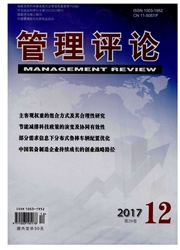

 中文摘要:
中文摘要:
本文以中国现行企业年金制度和纳税递延政策为背景,利用一般均衡的世代交叠模型,分析了在纳税递延前提下,提高个人缴费率、企业缴费率以及税率对单位有效劳动资本存量、利率、工资、消费、储蓄以及效用产生的影响,并比较了不同税率变化趋势下影响作用的不同。研究结果表明:当前纳税递延的经济效应很大程度上取决于未来的税率变化;提高退休期消费与提高总效用水平往往不能同时实现,当退休期税率下降时,退休期消费增加,效用反而下降;提高企业缴费率对经济变量的影响程度要远大于提高个人缴费率的影响程度。
 英文摘要:
英文摘要:
Based on the employer pension system and tax - deferred policy in China, this paper builds a general equilibrium model of overlapping generations to analyze how the changes of the contribution, employer matching and tax rate will affect the economic variables, such as the capital per worker, interest rate, wage, savings, consumption and total welfare. In the meantime, the paper also makes a comparison between the effects under different future tax trends. The research results are as follows : the effects of the tax - deferred policy depend on the future tax trends, we can hardly increase the retirement consumption and welfare at the same time, the decrease of the welfare always follows the increase of the retirement consumption when the future tax rate falls, the employer matching affects economic variables way more than employee contribution does.
 同期刊论文项目
同期刊论文项目
 同项目期刊论文
同项目期刊论文
 期刊信息
期刊信息
